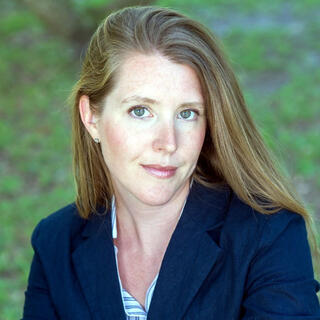
The value of higher education (HE) is in question (Dollinger, 2018). The rigid and archaic structure of the system is outdated, and so too is the tenure process (Stromquist, 2017). Adjunct faculty are the majority (American Association of University Professors, 2018), yet their needs are not prioritized (Bickerstaff & Chavarin, 2018).
The wide-ranging skills and qualifications of this population have brought their effectiveness into question (Mueller et al., 2013). Primarily existing in isolation with little more than shared office space and limited access to resources (Nica, 2018), part-time faculty's perceived insider status and job satisfaction become a concern.
CR&DALL Seminar Series 2023-24
Exploring Higher Education Faculty’s Collective Efficacy, Perceived Insider Status, and Job Satisfaction
Presenter: Dr Stacey Silkey Schultze
Date: Wednesday 13th December 2023, 1100-1230
RSVP: Eventbrite
All are welcome and there is no fee for this event. Coffee/tea and biscuits will be available as an extra incentive.
Cohesion, support, and equitable compensation conducive to producing positive student outcomes in HE are lacking across faculty populations (Ferguson, 2021). It is not just the part-time faculty who are bearing the brunt of this disaster. Full-time faculty and students miss opportunities because of the lack of cohesiveness and Collective Efficacy (CE) that promotes academic optimism and achievement (Hartman et al., 2019).
Although Bandura (2000) and others have widely explored CE in K-12 settings, there is a gap in the literature about the role of CE in HE faculty and its relationship to perceived insider status and job satisfaction. Aside from one study by Fives and Looney (2009), which explored college instructors’ sense of teaching and CE, no other known studies have explored CE in HE faculty. Not a single study has pinpointed contingent faculty CE beliefs. Few, if any studies, distinguish between willfully and unwilfully contingent faculty. In Simmons-Davis’s (2020) exploration of CE and Culturally Responsive Pedagogy (CRP) relating to leadership practices in higher education, she recommended further research about "understanding how leaders make use of employees' talents, how they communicate persuasive expectations, and how they reflect transformational leadership to increase efficacy" (p. 76). This research, by extension, includes assessing faculty's perceived insider status and CE beliefs.
This seminar will explore results from quantitative research testing the theories of perceived insider status and collective efficacy beliefs as they relate and differ according to faculty status and job satisfaction using correlational and causal-comparative designs. Findings consistent with Kunnari et al.’s (2018) research connoting CE beliefs’ connection with job satisfaction, where they note that “A socially supportive teaching environment increases collective efficacy, and it has a positive impact on teachers’ job satisfaction” (p. 112) will be presented along with results regarding how CE and PIS play a role in job satisfaction across faculty groups. A discussion of possible interventions and additional research avenues will ensue.
References
American Association of University Professors. (2018, October 11). Data snapshot: Contingent faculty in US higher ed (Report). https://www.aaup.org/news/data-snapshot-contingent-faculty-us-higher-ed#.YRNOhohKiM8
Bandura, A. (2000). Exercise of human agency through collective efficacy. Current directions in psychological science, 9(3), 75-78. https://doi.org/10.1111/1467-8721.00064
Bickerstaff, S. E., & Chavarin, O. (2018). Understanding the needs of part-time faculty at six community colleges. Columbia University. https://ccrc.tc.columbia.edu/publications/understanding-part-time-faculty-community-colleges.html
Dollinger, M. (2018). Higher education’s value: In the experience itself. Research and Development in Higher Education: [Re] Valuing Higher Education, 41, 60-68. https://www.researchgate.net/profile/Mollie-Dollinger/publication/327260875_Higher_Education’s_Value_In_the_Experience_Itself/links/5b84c6f3299bf1d5a72c86ac/Higher-Educations-Value-In-the-Experience-Itself.pdf
Ferguson, S. N. (2021). Effects of faculty and staff connectedness on student self-efficacy. Journal of the Scholarship of Teaching and Learning, 21(2). https://doi.org/10.14434/josotl.v21i2.28597
Fives, H., & Looney, L. (2009). College instructors' sense of teaching and collective efficacy. International Journal of Teaching and Learning in Higher education, 20(2), 182-191. https://files.eric.ed.gov/fulltext/EJ864335.pdf
Hartman, R., Sixsmith, D., Akojie, P., & Banton, C. (2019). Adjunct faculty perceptions of participation in online collaborative research teams. Higher Learning Research Communications, 9(2), 4. https://doi.org/10.18870/hlrc.v9i2.459
Kunnari, I., Ilomäki, L., & Toom, A. (2018). Successful teacher teams in change: The role of collective efficacy and resilience. International Journal of Teaching and Learning in Higher Education, 30(1), 111-126. http://hdl.handle.net/10138/235308
Mueller, B., Mandernach, B. J., & Sanderson, K. (2013). Adjunct versus full-time faculty: Comparison of student outcomes in the online classroom. Journal of Online Learning and Teaching, 9(3), 341. https://jolt.merlot.org/vol9no3/mueller_0913.pdf
Nica, E. (2018). Has the shift to overworked and underpaid adjunct faculty helped education outcomes? Educational Philosophy and Theory, 50(3), 213-216. https://trevecca.on.worldcat.org/oclc/7785417129
Simmons-Davis, V. (2020). The roadmap to inclusive excellence: Culturally responsive pedagogy in higher education (Publication No. 2474848782) [Doctoral dissertation, University of Louisiana at Monroe]. ProQuest Dissertations & Theses Global.
Stromquist, N. P. (2017). The professoriate: The challenged subject in US higher education. Comparative Education, 53(1), 132-146. https://doi.org/10.1080/030500068.2017.1254975
Biography
Stacey M. Silkey Schultze, EdD, MFA is an artist, curator, and research & data analyst specializing in quantitative analysis using SPSS, and measure development, deployment, validity and reliability. Additionally, Dr Schultze has survey and interview experience and excellent qualitative analysis skills.
Recently she has consulted for a regional organization managing a community outreach campaign, event planning, and marketing & PR for a proposed merger of two school districts. As a consultant, Dr Schultze has written and designed professional development for K-12 teachers covering online learning & teaching best practices. She leads a Study Action Team focusing on Out-of-School-Time opportunities in her county.
During the COVID-19 pandemic, she became an arts organization director and curator who organized three outdoor exhibitions in western Massachusetts. In this role, she wrote and procured grants, created promotional materials, and participated in a panel discussion at the Berkshire Museum. As a professional artist who has exhibited both nationally and internationally, Stacey continues to grow her own creative practice.
Dr Schultze has instructed college courses for more than 5 years at three institutions in the southeastern US ranging from art history, studio art, design, and research subjects. She is a Subject Matter Expert (SME) in 5 fields (Research, Leadership, Design, Art and Art History) and an Instructional Designer (ID) specializing in Moodle, Blackboard & Canvas. She has designed upwards of 10 courses, often using open-source materials.
- Log in to post comments














Latest Comments